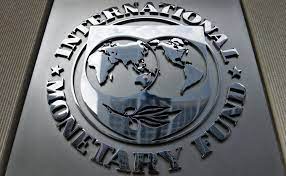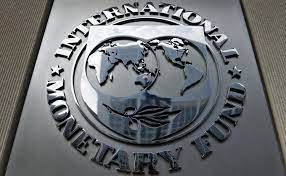
The International Monetary Fund said on Thursday that a shortage of access to Covid-19 vaccines is stifling economic recovery in Sub-Saharan Africa and that the region will fall behind by years compared to developed countries because of this.
In its regional economic outlook, the fund reaffirmed its 3.7 per cent growth forecast for this year and 3.8 per cent for 2022 for Sub-Saharan Africa, saying that increasing commodity prices and favorable harvests of crops had been beneficial for some countries, even though the overall scenario was quite dire for the region.
"The outlook remains extremely uncertain, and risks are tilted to the downside," the IMF team led by Shushanik Hakobyan wrote in its report. The path that the pandemic takes and the situation of availability of vaccines were critical for the future of the region while other factors like disruptions in global trading activity and the financial markets were also key, Hakobyan wrote in the report.
The projected growth rates for Sub-Saharan Africa in 2021 indicate that the region has already experienced the "slowest recovery in the world."
The report expects a 5.0 per cent growth this year and 2.2 per cent in 2022 for the most developed country of the region - South Africa. According to the report, the growth rate of Nigeria is expected to be at 2.6 per cent in 2021, with rates remaining at that level for the near future because of higher oil prices.
The report also forecast a contraction of Angola's economy by 0.7 per cent in 2021, but the economy will potentially reverse its eight-year cycle of recession next year (2022) with a growth rate of 2.4 per cent, even though that rate is lower than previously expected because of declining investments and technical issues being prevalent in the oil sector.
According to the fund, rising food inflation will continue to be a cause of major concern for the region, particularly for the approximately 30 million people who have been pushed into extreme poverty as a result of the Covid-19 pandemic. Since 2019m, there has been a steady rise in food inflation which reached a peak in August at 10.9 per cent throughout the 25 countries of the region whose monthly data was available, the report noted.
"The crisis has worsened inequality not only across income groups but also across subnational geographic regions, which may add to the risk of social tension and political instability," the authors of the report said.
"Without external financial and technical assistance, the divergent recovery paths of sub-Saharan Africa and the rest of the world may harden into permanent fault lines, jeopardizing decades of hard-won progress."
(Source:www.reuters.com)
In its regional economic outlook, the fund reaffirmed its 3.7 per cent growth forecast for this year and 3.8 per cent for 2022 for Sub-Saharan Africa, saying that increasing commodity prices and favorable harvests of crops had been beneficial for some countries, even though the overall scenario was quite dire for the region.
"The outlook remains extremely uncertain, and risks are tilted to the downside," the IMF team led by Shushanik Hakobyan wrote in its report. The path that the pandemic takes and the situation of availability of vaccines were critical for the future of the region while other factors like disruptions in global trading activity and the financial markets were also key, Hakobyan wrote in the report.
The projected growth rates for Sub-Saharan Africa in 2021 indicate that the region has already experienced the "slowest recovery in the world."
The report expects a 5.0 per cent growth this year and 2.2 per cent in 2022 for the most developed country of the region - South Africa. According to the report, the growth rate of Nigeria is expected to be at 2.6 per cent in 2021, with rates remaining at that level for the near future because of higher oil prices.
The report also forecast a contraction of Angola's economy by 0.7 per cent in 2021, but the economy will potentially reverse its eight-year cycle of recession next year (2022) with a growth rate of 2.4 per cent, even though that rate is lower than previously expected because of declining investments and technical issues being prevalent in the oil sector.
According to the fund, rising food inflation will continue to be a cause of major concern for the region, particularly for the approximately 30 million people who have been pushed into extreme poverty as a result of the Covid-19 pandemic. Since 2019m, there has been a steady rise in food inflation which reached a peak in August at 10.9 per cent throughout the 25 countries of the region whose monthly data was available, the report noted.
"The crisis has worsened inequality not only across income groups but also across subnational geographic regions, which may add to the risk of social tension and political instability," the authors of the report said.
"Without external financial and technical assistance, the divergent recovery paths of sub-Saharan Africa and the rest of the world may harden into permanent fault lines, jeopardizing decades of hard-won progress."
(Source:www.reuters.com)





